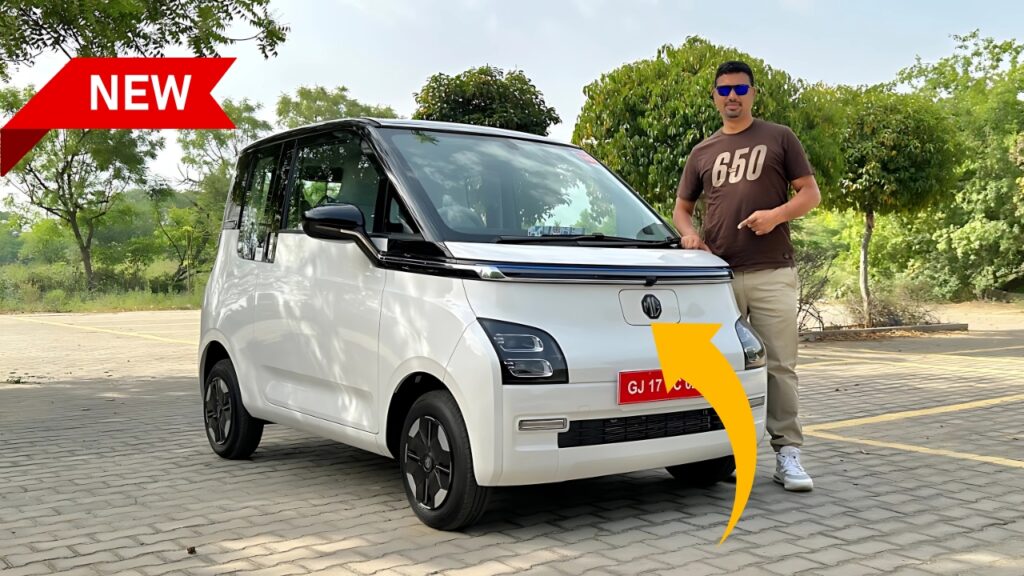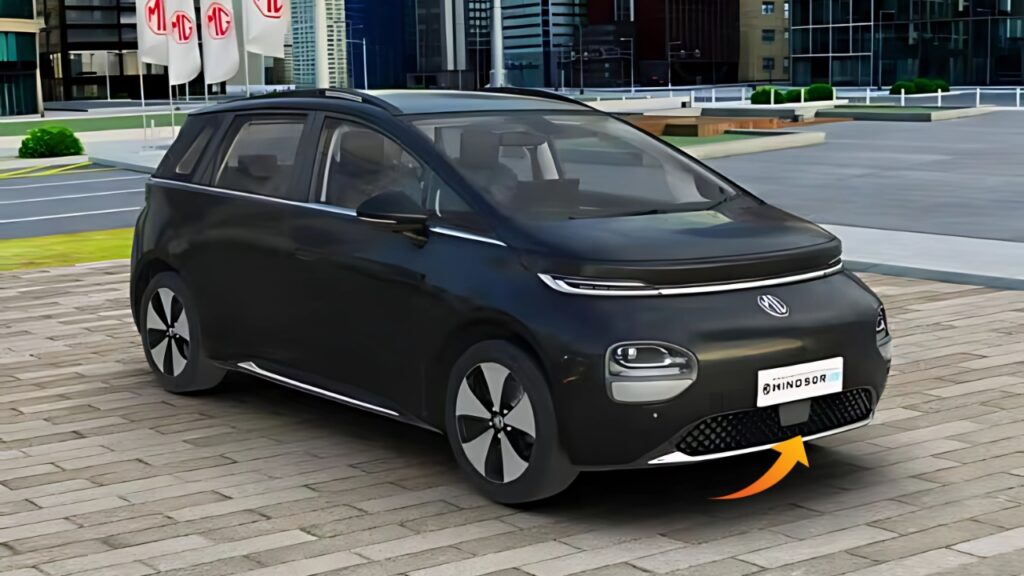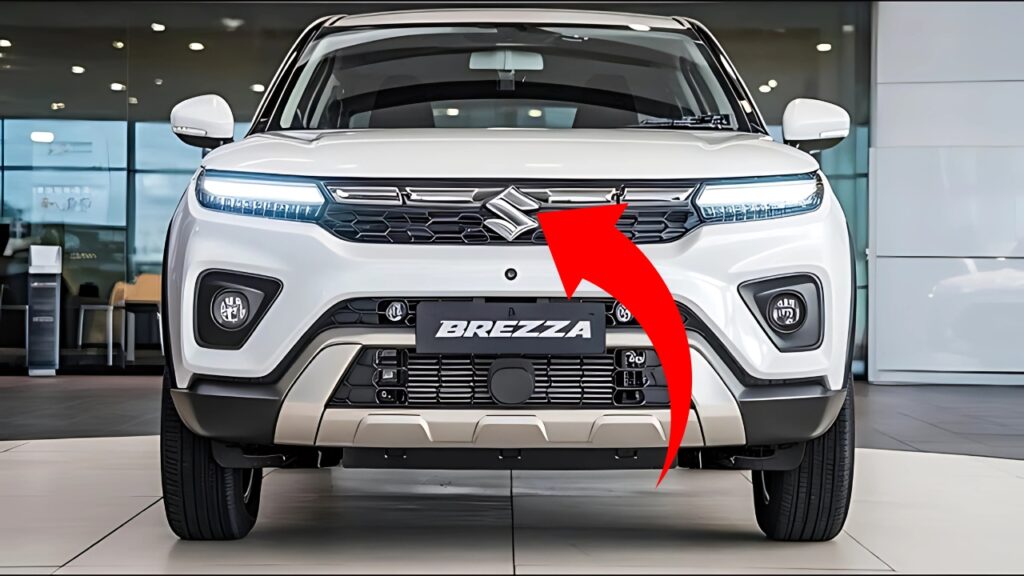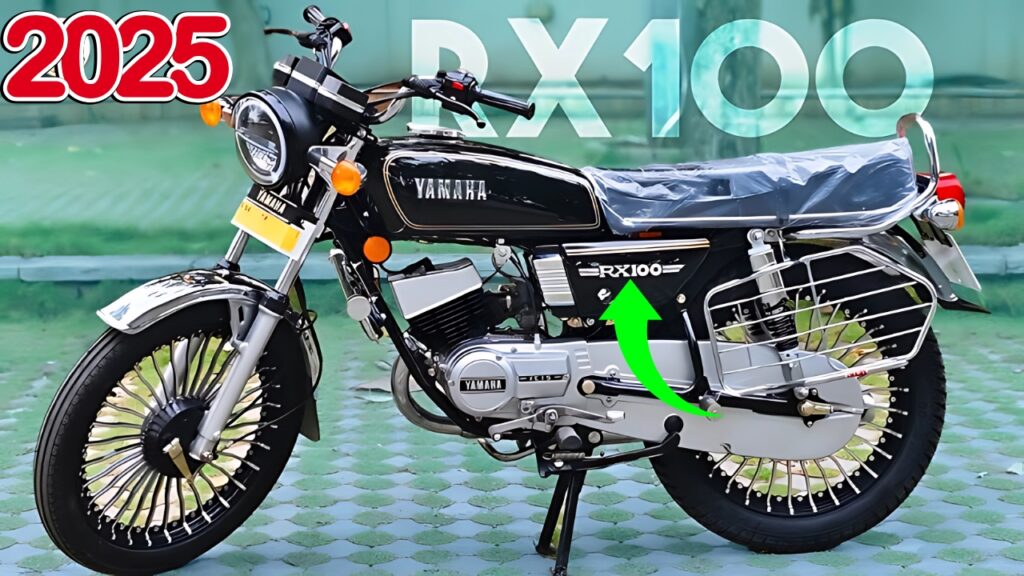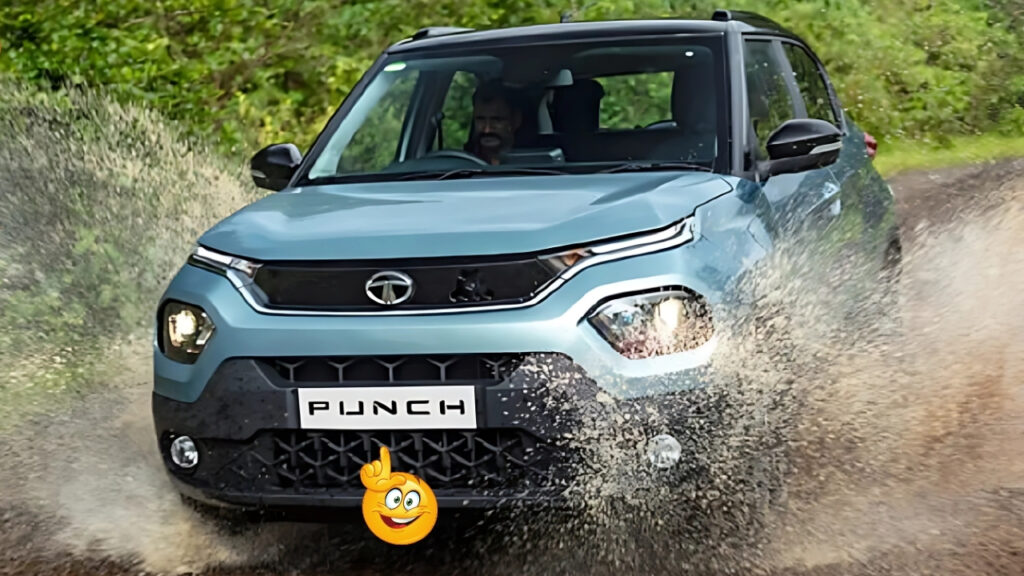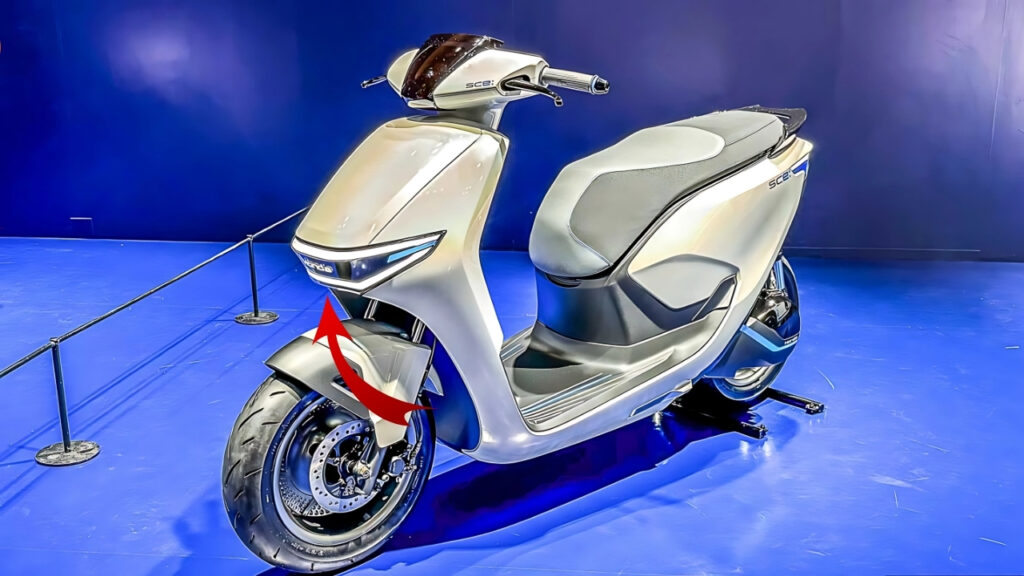Yulu Wynn – In the rat-race world of congested city traffic, where gridlocks are as common as morning coffee, the Yulu Wynn shines bright.
This stylish electric two-wheeler is not just another vehicle; it’s quickly transforming into the mascot for the urban mobility revolution that’s quickly running us over in Marc Maron’s overcrowded cities.
After several months of hyping and guessing, Yulu has finally announced the pricing strategy for its top-end scooter and people on the streets are talking about it.
Table of Contents
The Urban Mobility Crisis, and the Yulu Vision

Our cities, let’s face it, are choking. The typical city resident spends nearly 54 hours a year sitting in traffic jams. That is more than two full days of your life each year, watching taillights and inhaling exhaust fumes.
The environmental degradation, meanwhile, continues to accrue, as transportation accounts for about 29 per cent of greenhouse gas emissions in metropolitan areas.
Yulu emerged from this crisis with a simple, if audacious, vision: To forever change how people get around cities — and in the process — help to lessen carbon footprints.
Founded in 2017 Amit Gupta, RK Misra, and Naveen Dachuri, three founders with rich technological and urban planning roots, Yulu has gradually evolved from a mere mobility company into something more significant. It is trying to bill itself as a necessary service for the modern urbanite.
“When we started Yulu, everybody laughed when we said electric micro-mobility can replace car in last-mile transportation,” Gupta said at the Wynn’s launch on Friday.
“But five years and 3,000,000 rides later, we’re showing that sustainable mobility is not only doable — but preferable.”
The Wynn: SpecDolling at It’s Best
The Wynn is Yulu’s most advanced model yet. Among Wynn’s antecedents, which were aimed primarily for rentals, only interested consumers who were considering buying electric vehicles could take one home to try out for a couple of days.
The numbers don’t lie about what it can do:
The Wynn is powered by a surprisingly potent 1.5 kW motor which allows it to hit speeds of up to 25 kmph—keeping it as the sweet spot between performance and safety in city settings. The battery: Lithium-ion, 2.2 kWh Range: 68 km Battery: This is enough for the daily commute of a common city rider.
But what really sets the Wynn apart is its charging network. The vehicle is powered by a portable battery and the same can be replaced at any of Yulu’s 250+ charging stations in partner cities.
Users also have the option to charge the battery in the comfort of their own home by plugging it into a regular power outlet, and the charging will only take around 4 hours for a full cycle.
While the scooter is significantly lighter than standard scooters, but the robust build of it golds it together with its aircraft grade aluminum frame.
Supported by narrow dimensions, it’s less likely to get involved in a high-speed collision with a mobility scooter. And thanks to its 680mm wide body, you can weave in and out of traffic like you’re riding through the apocalypse.
On the safety side, incognito has thrown regenerative braking, LED lighting systems to maximize visibility at night, and an ip67 waterproof rating to make sure your board rides through monsoon season.
The Wynn also features GPS Tracking, Anti-theft Alarm, and Remote Immobilisation via the companion smartphone app.
The User Experience – Transport, and Beyond
For three weeks during a testing phase that took place in Bangalore’s Indiranagar neighborhood, I got to play around with the Wynn. My first thought was that the car fit so easily into my routine life that often requires many different forms of transport.
The Wynn’s lightweight bulk made it easy to weave through busy market streets so congested that motorcycles can barely make it through. I wore my business attire as well as my Saturday casuals with ease as I mounted and dismounted awkward free.
The ecosystem, in particular, is what impressed me. The app does much more than unlock and monitor battery, and is also designed to offer route optimization that takes into account real-time road conditions, traffic congestion and even air quality.
It offers routes that keep you away from pollution (a kind touch for city folk who care about their health).
The app further gamifies green riding by giving points for energy-friendly rides, which can be exchanged at partner stores — including coffee shops and co-working spaces. This is what Yulu refers to as a “sustainable mobility ecosystem”, not just an RTC.
Ravinder Sharma, a software engineer who was part of the same testing programme, described his experience, “I used to pay ₹350 per day for the cab ride, and now, except for the initial invested amount, spent practically nothing. I used to spend 45 minutes in traffic, now it takes me 20, and I’m actually looking forward to it.”
The Price Reveal: Sustainability Accessibility
Yulu has finally revealed Wynn’s pricing after speculation of months, and it seems Yulu keeps to its promise of making sustainable mobility more affordable.
The base variant is priced from ₹39,990 (corresponding to near $535), making it competitive with the entry level petrol scooters, yet with much lower running costs. For context, an average petrol scooter costs ₹70,000-₹90,000 and the fuel expense, according to the owner’s dex (from my friend Yogendra, is a zippy 1998 ICO), comes to ₹1,200-₹2,000 monthly based on usage patterns.
The premium model, which offers a larger battery (3.0 kWh) and additional connectivity options is ₹49,990 ($670.) Both are eligible for government FAME II subsidies, which means the cost may end up lower by ₹5,000-₹7,500, depending on the state.
Yulu is collaborating with several financial institutions to enable finance options from ₹1,800 a month, equivalent to the monthly spends on ride-sharing by regular commuters.
But the most interesting of the bunch could be the subscription model, under which users can access Wynn for ₹2,999 a month with a six-month stipulation.
We are talking about maintenance, insurance and swapping batteries on demand at specified points to reduce range anxiety and maintenance thoughts.
“We understand different users have different use cases,” said Kashish Ladha, Yulu’s chief business officer. “They want some ownership; they want some flexibility. It’s that it works both ways and makes sense for the customer.”
Environmental Impact: Metrics That Count
The potential upside of wholesale adoption of Wynn could be well worth it. Each Wynn replaces a petrol scooter and saves approximately 1.2 tonnes of carbon each year in an urban-based utility model.
Also, the vehicle are thought out for sustainability beyond this just emissions. About 72% of the content is sourced locally which helpmate the transportation carbon footprints.
The battery packs are developed for second-life use in stationary storage post-vehicle life, and the company has created a recycling program that reclaims up to 90% of materials.
“We’re not going to be selling vehicles; we will be creating closed-loop sustainable mobility ecosystem,” stressed Naveen Dachuri, Yulu’s co-founder and CTO.
From our make to end design, manufacturing, we consider every single detail, [regarding] waste reduction and environmental stewardship at the end of the day.
Challenges and Roadblocks
But, euphoric as they are, there are barriers to its wide use. Charging infrastructure for electric vehicles, while getting better, is still uneven from city to city.
Yulu has overcome this by partnering with municipal corporations along with private companies such as metro rail stations to set up charging points at the city’s transportation hubs.
Questions of safety remain increasingly pressing, especially when it comes to the moment that these cars will be asked to join more traditional traffic.
Yulu has responded by bundling in extensive rider training programs with each purchase and subscription, but critics say broader policy frameworks are required.
Maybe the biggest barrier, though, is psychological: You have to somehow persuade folks who have ridden cars and motorcycles for decades to switch to a machine with its own unique sets of abilities and limitations.
“It’s not to substitute every trip but to substitute a percentage,” said Amit Gupta. “It’s picking what’s the right riding tool for each ride. The Wynn is great for rides under 10 kilometers, which account for almost 78 percent of urban trips.”
The Big Picture: Future of Urban Mobility
The Wynn’s arrival is timely with respect to global urban mobility. Cites from Seoul to Paris are already enforcing diesel and petrol bans within their central zones, while customers are valuing eco credentials more in what they choose to drive.
For urban planning experts, vehicles such as the Wynn are not considered in isolation: rather, they are elements contributing to a unified mobility network.
“There isn’t any one mode that’s the future,” said Dr. Anjali Mahajan, director of the urban mobility lab at the Institute for Sustainable Communities.
“It’s the integration of all these modes — walking, biking, micro-mobility, public transit — into coherent, connected networks that cut down on the amount of time you have to travel and the environmental burden for doing so.”
In this sense, the Wynn is more than a mere insertion into a new market, it is a way of moving that foreshadows what the future of urban transportation will look like.
If successful, it could speed up the implementation of infrastructure and policy initiatives that promote sustainable mobility.
Consumer Response and Market Outlook
Pre-orders for the Wynn began at the same time as the pricing reveal, and the response has been illuminating. Yulu said more than 5,000 bookings were made in less than 48 hours across the launch cities of Bangalore, Mumbai and Delhi NCR.
The Indian electric two-wheeler market is estimated to grow at a CAGR of 44% by 2025, and with the rise in the last mile micro-mobility solutions, the Wynn is gaining the share.
“What we are seeing is more than just early adopter exuberance,” Priya Venkataraman, mobility industry analyst at Emerging Markets Research Group, said.
“It’s a huge shift in how urban India is thinking about how people should move.
Early adopters such as Mihir Desai, a 34-year-old architect, also share the view. Desai booked the scooter minutes after pre-orders opened.
“It’s not just about saving money or even the environment, but that both are important,” he said. “It’s about transforming the joy of moving through your city — feeling connected to your surroundings instead of isolated in a metal box.
Not Just Another Car
As cities internationally fight factors such as traffic, pollution, and immediate needs for sustainability, products like the Yulu Wynn provide insight into a more balanced urban future.
More than the specifications and cost, the Wynn may be important because it could be what makes electric micro-mobility normal and boring for mundane travel in day-to-day life.
“We didn’t set out to design the Wynn to be amazing,” Amit Gupta told me in our conversation. “We crafted it to feel normal — so normal that the generations to come will have to wonder why we ever lived in cities any differently.
The Wynn is well positioned to help accelerate this normalisation process, due to its mindful design, open value proposition and ecosystem strategy.
It may or may not succeed in the end, depending not just on Yulu’s execution but on the broader sense of how ready urbanites are to rethink their relationship with the transport of the urban future.
For now, though, one thing’s for sure: the world of urban mobility is electric, not to mention clean, lightweight and, thanks to the competitive price of the Wynn’s, increasingly accessible.
